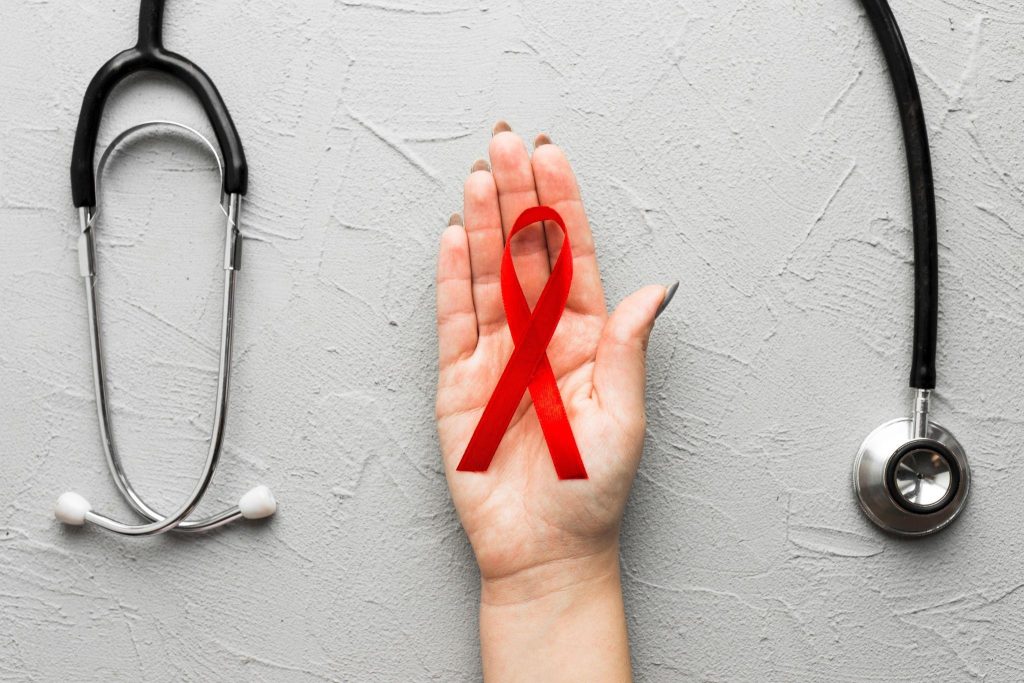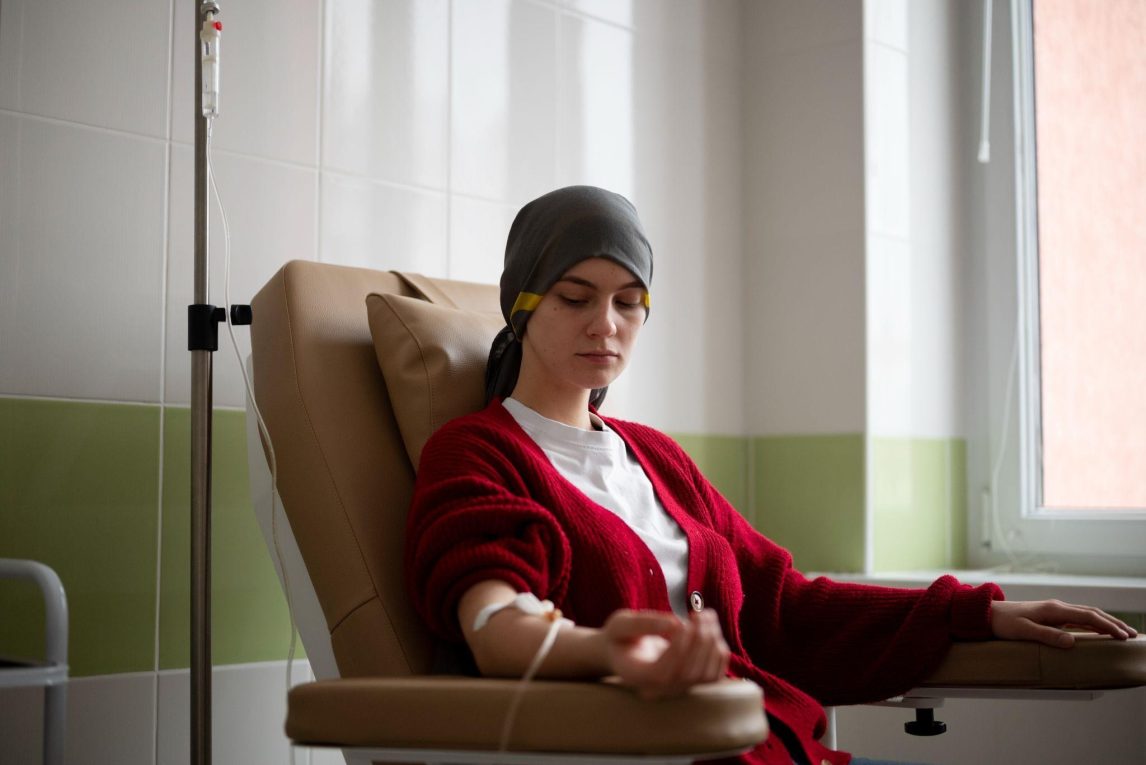Picture this: You’re in a notorious traffic jam, windows rolled up, AC blasting and ordering food on Swiggy. Outside, the AQI reads 250+ again. Inside, you’re stress-eating processed snacks while juggling three video calls. Sound like a typical weekday? For millions of young Indians, this scenario isn’t just relatable – it might be slowly killing us.
In a country where we’ve mastered the art of ordering biryani at 2 AM and binge-watching series until sunrise, we’re also witnessing something far more sinister. Cancer, once whispered about as something that happened to “uncle-aunties,” is now showing up uninvited in the lives of people who should be busy building careers, planning weddings, and posting Instagram stories.
The uncomfortable truth is this: among India’s adolescent and young adult population (15-39 years), cancer cases are rising dramatically, with breast cancer leading at 27.3% in females and mouth cancer at 12.0% in males. If you’re reading this and you’re a millennial or Gen Z living in India, this conversation is about your future – and it’s time we had it honestly.
Also Read: Top 7 Foods Proven to Combat Cancer and Enhance Wellness
The Numbers That Should Make You Put Down That Energy Drink
Let’s start with some hard facts that hit closer to home than we’d like to admit. The median age-adjusted incidence rate of cancer in young adults in India is 22.2 per 100,000 among males and 29.2 per 100,000 among females, with the highest numbers recorded in the 35-39 age group.
But here’s what makes the Indian scenario uniquely challenging: while global studies show that Generation Z and millennials worldwide face higher risks of 17 cancer types compared to previous generations, India’s young population is dealing with a perfect storm of traditional risk factors combined with modern lifestyle hazards.
The pattern is similar to global trends but with distinctly Indian flavors. Research shows that people born in 1990 have two to three times higher risk of pancreatic, kidney, and small intestine cancers compared to those born in 1955 – and in India, this translates to your generation facing cancer risks that your parents’ generation never had to consider seriously until their 50s or 60s.
The Indian Cancer Storm: Why Our Generation Is Different?
The Air We Breathe (Or Try To)
Remember COVID, when the world was shut down, the air was clean, and you could see the Himalayas from Amritsar for the first time in decades? We are back to the new normal.
But now, let’s talk about the elephant in the room – or rather, the smog in the sky. The Air Quality Index (AQI) in India is steadily deteriorating, leading to a rise in mortality rates due to lung cancer, attributed to factors like PM 2.5, PM 10, and Ozone.
Also Read: The Importance of Gut Health: Why It Matters More Than You Think
If you live in any of the metros or any major Indian city, you’re breathing air that would have been considered a health emergency just a generation ago. Nearly half of lung cancer cases in people who have never smoked are estimated to be related to air pollution.
Think about it; you could be a non-smoker, exercise regularly, eat home-cooked food, and still be at higher cancer risk simply because of the air you breathe while commuting to work.
The Food Revolution That Went Wrong
Remember when your grandmother used to say, “What nutrients are present in processed food?” She was onto something. Our generation has witnessed the most dramatic dietary shift in Indian history. We’ve gone from traditional meals prepared fresh daily to a lifestyle where ordering food online has become the norm, not the exception.
Walk through any Indian metropolitan area and count the number of cloud kitchens, fast-food chains, and processed food outlets. We’ve embraced ultra-processed foods with the same enthusiasm we once reserved for homemade achaar and fresh rotis.
The irony? While we Instagram our trendy café brunches and midnight food deliveries, our bodies are struggling to process foods that contain preservatives, additives, and chemicals that didn’t exist in our parents’ diets.
The traditional Indian diet, rich in turmeric, garlic, green leafy vegetables, and whole grains, was naturally cancer-protective. But today’s urban young Indian diet? It’s a far cry from what our bodies evolved to handle.
Also Read: How Does Alcohol Cause Cancer? Know The Real Facts
The Stress Epidemic of Modern India
In India, young people often face unique pressures that many global cancer studies don’t fully show. There’s constant pressure from family and society—do well in studies, get a high-paying job, buy a house in cities where prices are sky-high, marry at the “right” time, and still look perfect on social media, all while dealing with stressful traffic and daily struggles.
This kind of ongoing stress weakens the immune system and increases inflammation, which can make it easier for cancer cells to grow. When you combine global challenges faced by millennials with India’s own pressures—like joint family expectations, marriage demands, job competition, and financial worries—the stress levels become much higher than what earlier generations experienced.
The Urbanization Trap
Research shows significant rural-urban disparity in cancer burden and care in India, with urban areas showing different cancer patterns due to lifestyle and environmental factors. The migration to cities that defines our generation has exposed us to a cocktail of cancer-causing factors: air pollution, water contamination, sedentary lifestyles, processed foods, and chronic stress.
Your parents’ generation in smaller towns and villages had access to cleaner air, more physical activity, fresh food, and stronger community support systems. You? You’re trading all of that for career opportunities in cities where the very environment is working against your health.
Also Read: Early Signs of Breast Cancer You Should Never Ignore
The Silent Killers in Indian Metropolitan Life
The Commute That’s Slowly Killing You
If you’re spending 2-3 hours daily in traffic, breathing exhaust fumes while stress-eating snacks and remaining sedentary, you’re participating in a daily activity that significantly increases cancer risk. The combination of air pollution exposure, physical inactivity, and chronic stress from traffic creates a perfect storm for cellular damage.
The Work Culture Cancer Connection
India’s notorious work culture – the late-night calls with international clients, the “always available” mentality, the pressure to constantly prove yourself – is creating chronic stress and sleep deprivation that previous generations never experienced. When you combine this with poor eating habits (skipping meals, then overeating processed food) and no time for exercise, you’re creating the ideal conditions for cancer development.
The Festival-to-Delivery Cycle
We have turned celebrations and convenience into an industry. In the past, festivals meant cooking together, putting in effort, and using fresh ingredients. Today, we order food online, eat sweets full of preservatives, and celebrate with items our grandparents wouldn’t even recognize. What was once an occasional treat has now become something we eat almost every day.
Five Steps Every Young Indian Should Take
The reality is sobering but not hopeless. Understanding these risks means you can take action before you become another statistic. Here’s what you can do, keeping in mind the Indian context:
Master the Art of Mindful Eating: Start reading labels on packaged foods. If it contains more than five ingredients or ingredients you can’t pronounce, reconsider. Embrace traditional Indian cooking methods – the turmeric, garlic, ginger, and fresh vegetables your grandmother used weren’t just tasty; they were medicine.
Create Your Clean Air Bubble: Invest in air purifiers for your home, use N95 masks during high pollution days, and plan outdoor activities during cleaner air times. Consider the long-term health costs when choosing where to live.
Redefine Success: Success that comes at the cost of your health isn’t success at all. Set boundaries around work hours, practice saying no to excessive commitments, and prioritize sleep as non-negotiably as you prioritize your morning coffee.
Move Your Body Daily: You don’t need an expensive gym membership. Use stairs instead of lifts, take walking meetings, do yoga at home, or join local sports groups. Aim for 150 minutes of moderate activity weekly.
Get Regular Check-ups: Don’t wait until you feel sick. Annual health check-ups, including cancer screenings appropriate for your age and family history, should be as routine as renewing your insurance.
Also Read: Breast Cancer Explained: Symptoms, Causes & Treatment
The Wake-Up Call India Needs
Cancer doesn’t respect age, success, or social media followers. It’s an equal opportunity destroyer that’s increasingly targeting the generation that’s supposed to lead India’s future. But here’s the thing about our generation – we’re also the most informed, connected, and capable of change.
We disrupted traditional industries, redefined work culture, and connected rural India to global opportunities. Now it’s time to disrupt the cancer trend that threatens to define our future health landscape.
The choice is yours: continue the lifestyle patterns that are putting your generation at unprecedented cancer risk, or start making changes today that your future self will thank you for. Your parents sacrificed their comfort for your opportunities. Now it’s time to sacrifice some conveniences for your health.
The question isn’t whether cancer rates are rising among young Indians – the data is clear. The question is: what are you going to do about it? Your future self – and India’s future – depends on the answer.
Omega Hospitals: Complete Cancer Care

Bringing world-class cancer treatment to our community, Omega Hospitals offers comprehensive oncology services without the need to travel far from home. Omega Hospitals, Gachibowli, provides everything from preventive screenings and early detection to advanced treatments and rehabilitation – all under one roof. With experienced oncologists, compassionate nursing care, and family support services, we make the cancer journey manageable for patients and their loved ones.
Choose Omega Hospitals for complete cancer care – Advanced treatment with a personal touch.

